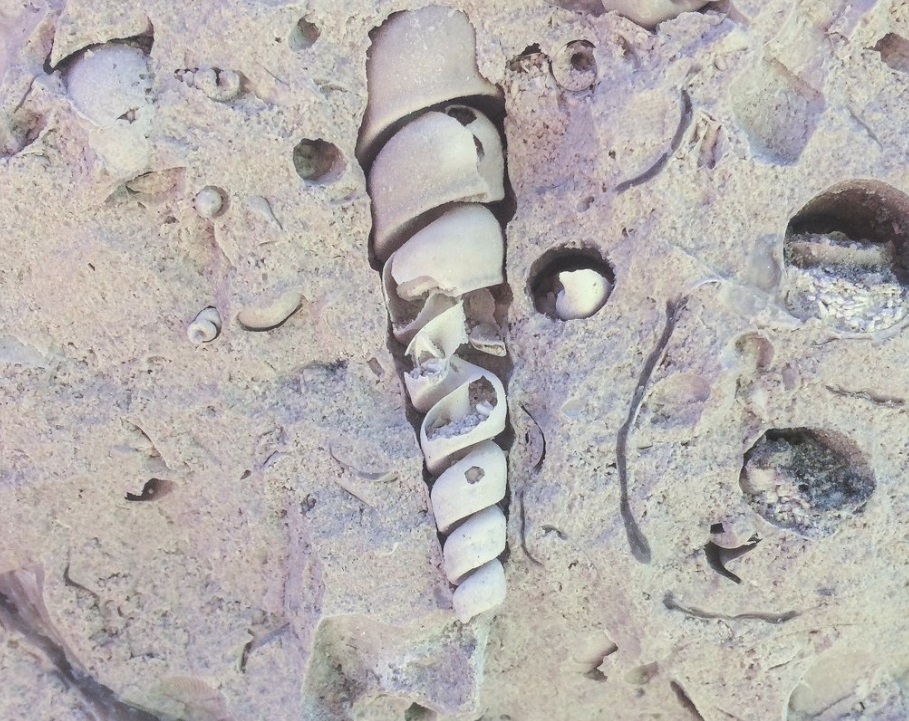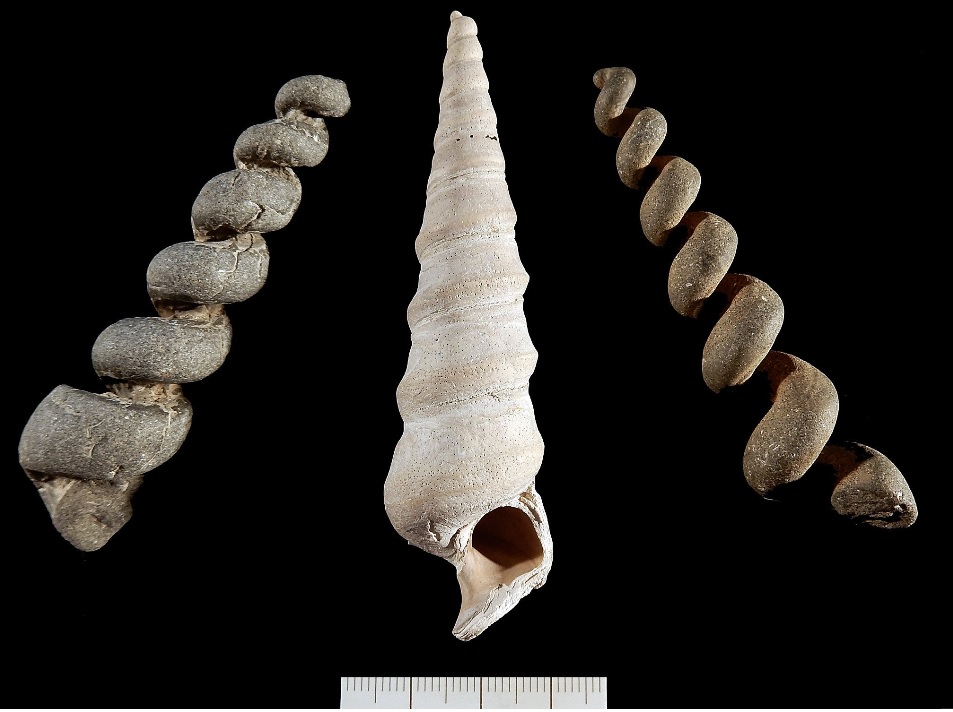A Fossilised Legacy in Bowers Roach
Albion Stone has long been renowned for supplying Portland Stone to prestigious projects across the UK and beyond. But within this celebrated limestone lies a remarkable natural feature—fossilised turreted gastropods, affectionately known as Portland Screws. Found in the fossil-rich Bowers Roach bed, these ancient marine creatures add both historical intrigue and aesthetic appeal to the stone.
A Glimpse into Prehistoric Portland
Over 145 million years ago, the area we now recognise as the Isle of Portland was submerged under warm, shallow seas. During this time, a diverse marine ecosystem flourished, including the turreted gastropods whose long, spiralled shells earned them the nickname "Portland Screws." These snails left behind their coiled imprints in the sediment, which, over millions of years, were transformed into the enduring Portland Stone we know today.

Geology and Formation: The Making of a Natural Masterpiece
The formation of Portland Stone is a fascinating geological tale:
Sedimentary Origins: The stone began its journey as layers of ooze and sediment deposited in a warm, tropical sea. Over time, the accumulation of tiny shells, calcareous materials, and organic matter was compacted and cemented into a hard, durable rock.
Fossilisation Process: As the turreted gastropods lived and died in these ancient seas, their shells became encased in sediment. With the passage of time, the pressure and mineral-rich waters transformed these remains into fossils. The unique conditions in the Bowers Roach bed allowed for exceptional preservation, capturing fine details of the gastropods' coiled shells.
Stratigraphic Importance: Bowers Roach is noted for its distinctive coarser grain and high fossil content, setting it apart from other Portland Stone layers. This particular bed provides geologists and historians with valuable insights into the marine environments of the Jurassic period, revealing a dynamic interplay of biological activity and sedimentation.
Bowers Roach: Where History Meets Design
Bowers Roach is one of the most visually striking beds of Portland Stone, distinguished by its natural fossil inclusions. Architects and designers value these embedded relics for their ability to bring depth, character, and a tangible connection to Earth’s ancient past into modern constructions. From prestigious heritage restorations to contemporary feature walls, every slab of Bowers Roach tells a story that stretches back millions of years.
Bringing Ancient Fossils into Modern Architecture
Albion Stone continues to supply Bowers Roach to a wide range of customers—from architects and stonemasons to private collectors—ensuring that this natural treasure finds its place in both traditional and cutting-edge designs. The rich fossil content of this Portland Stone bed makes each piece a conversation starter, seamlessly blending ancient natural history with modern architectural innovation.
For those interested in adding a touch of natural history to their next project, explore our range of Portland Stone and discover the timeless beauty of Bowers Roach.

Albion Stone, a fourth generation family business pride ourselves on having a helpful and skilled workforce as well as modern and traditional manufacturing process to enable us to produce the highest quality Portland Stone with minimal environmental impact.


